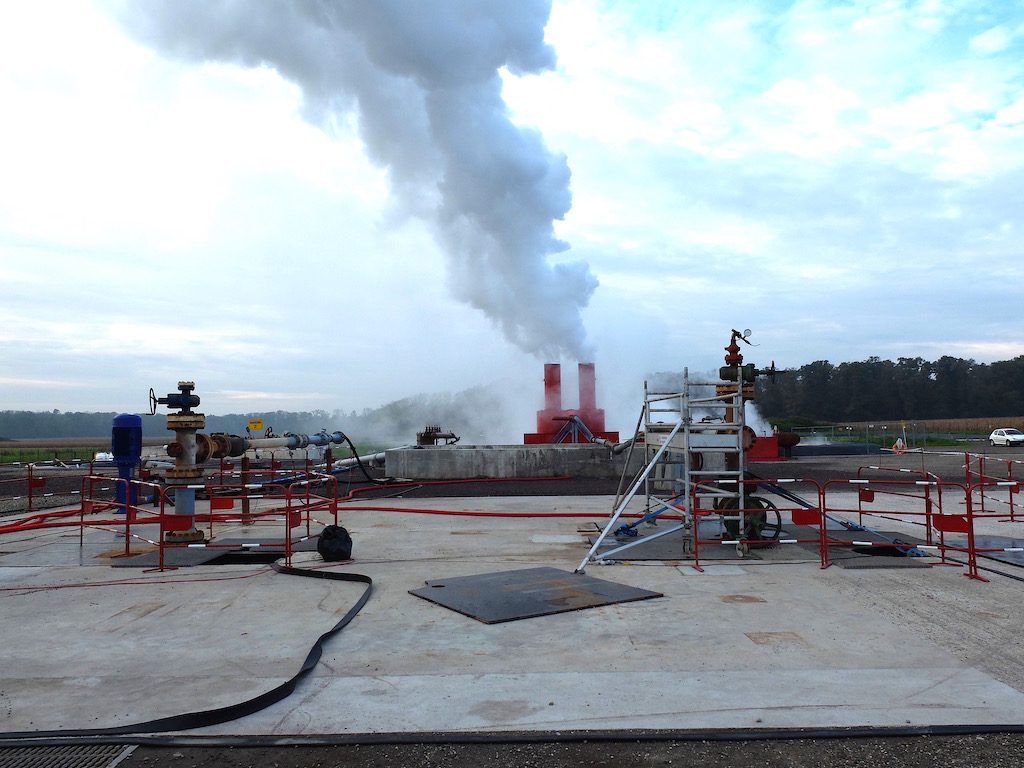Lacking guarantee for favourable FIT for geothermal in France big concern for industry

The new draft of legislation on multi-annual energy planning for France raises big concerns by the geothermal sector in France as in its current form does not provide for any guarantees of favourable feed-in-tariffs for geothermal power.
The new draft of the multiannual energy programming law (PPE) in France was eagerly awaited by the French geothermal sector. News from Alsace report that this was particulary the case by those involved in the development of deep geothermal energy projects in Alsace, in particular by the local utility Électricité de Strasbourg.
Because this law conditions several construction projects of geothermal power plants, in particular in Northern Alsace, where ÉS hopes to be able to build up to three new power geothermal plants (south of Wissembourg, around Hunspach and around Hoffen). But to guarantee at least an economic balance of the project, ÉS needs the electricity from deep geothermal energy to be bought back by the State at a preferential rate (by feed-in-tariff). So far, it has been EUR 0.24/ kWh. However, this price is not guaranteed in the text published Monday. “The investment cost of a power plant is between EUR 50 and 60 million. Without this tariff, there will be no geothermal power plants, “explains Bernard Kempf, director of development and external relations at ÉS.
Two windows of opportunity
However, if the “chances of seeing the project succeed are reduced”, ÉS does not admit defeat just yet. “We still have a small window of opportunity”, combatitively assures Bernard Kempf. The Strasbourg company hopes to be able to slip through the cracks and obtain its authorizations before the price drops. For the time being, ÉS has filed three mining work authorization applications for these plants, which are under investigation.
Another hope, both for ES and for the elected representatives of the territory: the PPE text mentions that “innovative projects, notably coupled with the production of lithium, will, if necessary, be supported within the framework of a device for research and development”. However, studies have shown that the geothermal water in the northern Alsace subsoil was made up of lithium chloride which, transformed into lithium carbonate, is used to make batteries. And the Eugeli (Européan geothermal brines lithium) project, led by Eramet (a large global lithium producer based in Trappes) aimed at finding a process to extract lithium from geothermal water, is continuing (*).
Energy transition and territorial development
“We still have a small window of opportunity with the production of lithium, comments Bernard Kempf. But we do not yet know the outline of this support”. Support that would be viewed with a positive eye, both by HE and by elected representatives of the territory, such as the departmental adviser Paul Heintz, who considers that deep geothermal energy is a lever to promote both the energy transition and the development of the territory – the Department has also imagined creating an activity zone in northern Alsace allowing companies to set up near any future power plants by simply plugging in to benefit from hot water.
The text published Monday is still provisional since a public consultation must still be conducted for a month, Bernard Kempf still intends to make his arguments – a meeting is also scheduled for late February between ES and ministerial services to discuss the subject.
Note that the PPE law does not call into question the sustainable energy project in progress in Illkirch. On the other hand, it “fundamentally calls into question”, another project of the Strasbourg company in the Eurometropolis, the location of which had not yet been defined.
(*) After laboratory work, and after technical and administrative validations, the next step is to test the process on an industrial site. This demonstrator, which will make it possible to demonstrate the viability of this process by 2021, will probably be installed at the existing Soultz-sous-Forets power station, a historic “laboratory” site, which is well suited to this type of testing.
Source: L’Alsace